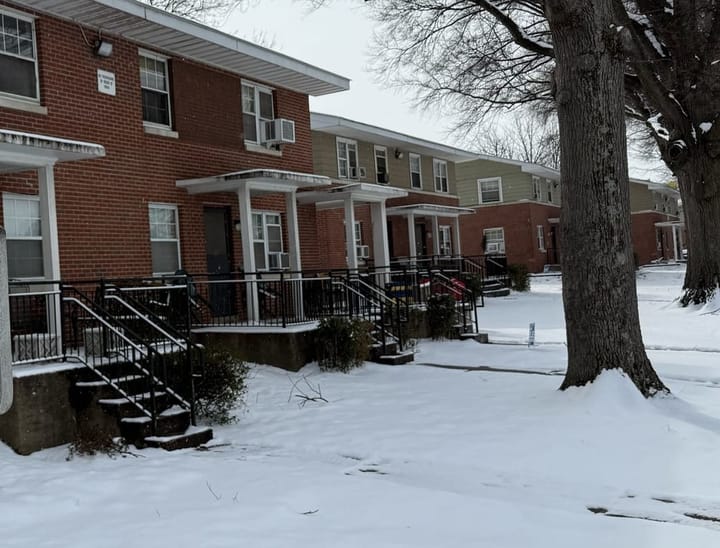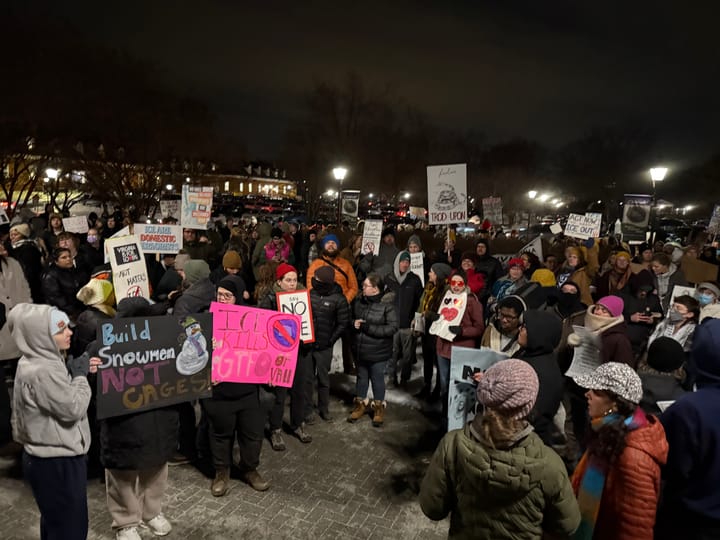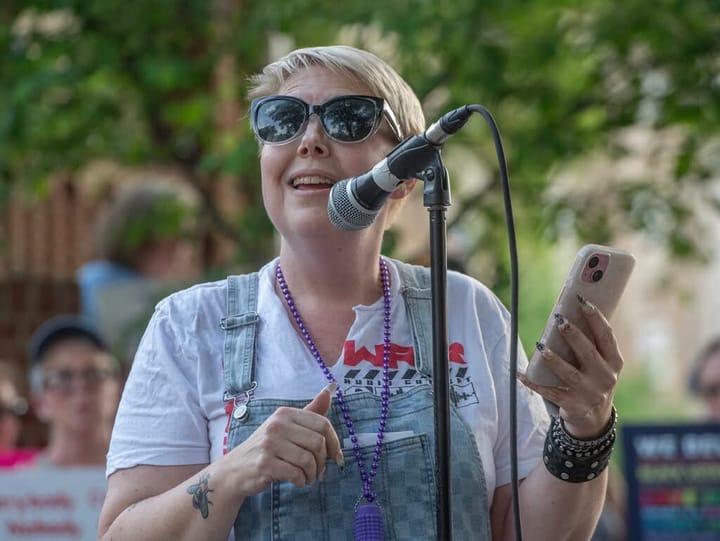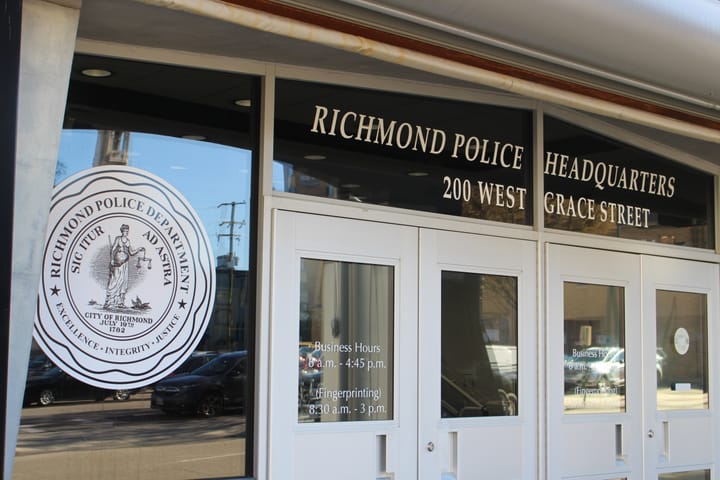Warner asks Richmond-area officials to seek regional solutions to infrastructure issues
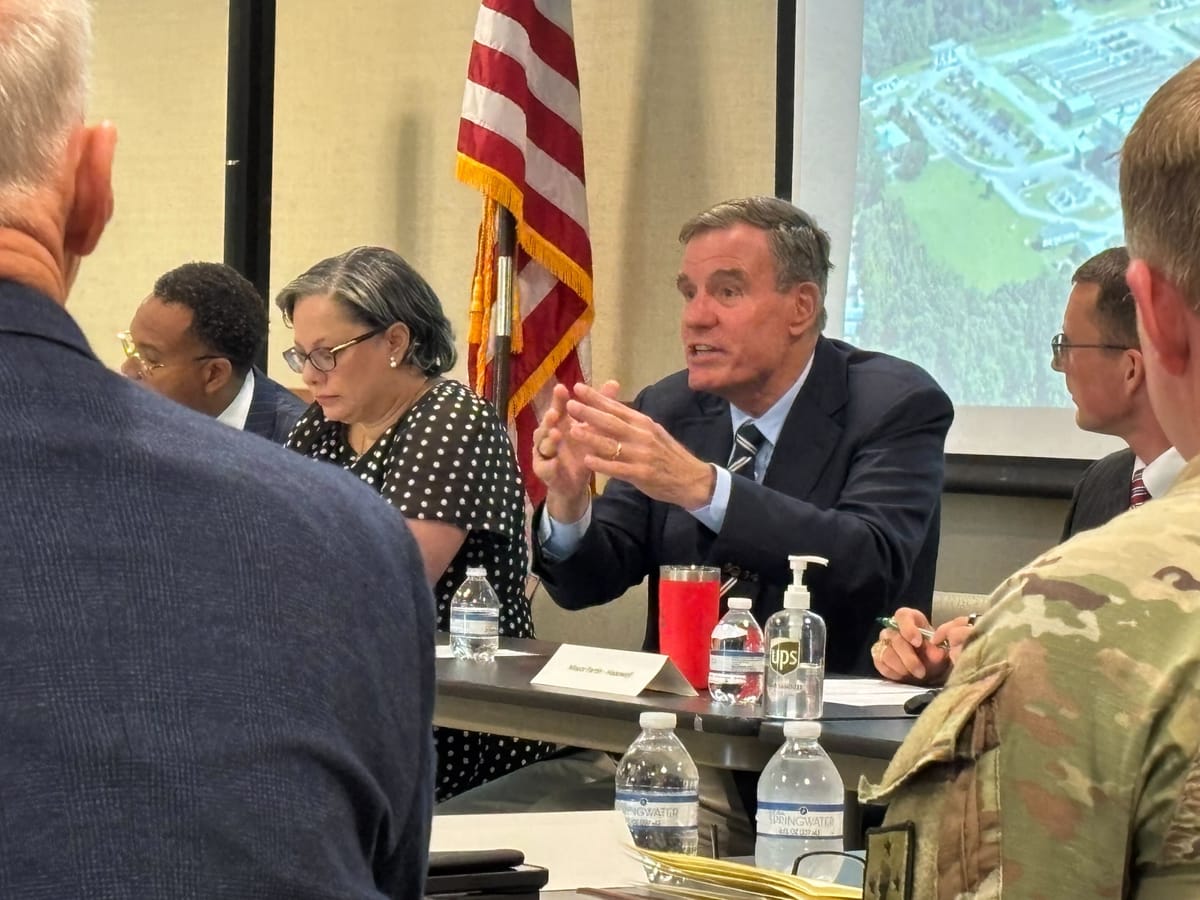
HOPEWELL – A series of water-related crises in the greater Richmond area this year should spark bolder and more collaborative thinking about how to get new investment in critical infrastructure, U.S. Sen. Mark Warner, D-Va., told a group of local and state officials who gathered in Hopewell Tuesday for a roundtable discussion.
Richmond Mayor Danny Avula and U.S. Rep. Jennfer McClellan, D-Richmond, attended the event with Warner, along with representatives from Henrico County, Chesterfield County, Petersburg, Hopewell and several other localities.
The group convened to talk about infrastructure challenges local governments have in common, and ways to attract more state and federal resources.
“To get this fixed, it’s going to take creativity, regional cooperation and bipartisan cooperation. And I promise I will do all I can from my office,” Warner told the attendees.
In July, Hopewell’s wastewater treatment plant accidentally spilled over 1 million gallons of raw sewage into the James River, causing a public health advisory that urged people to stay out of the water.
Hopewell’s sewage release was caused by a power failure at its plant, the same problem that knocked out Richmond’s water treatment facility in January and left Virginia’s capital city without usable water for nearly a week.
Petersburg was hit hard by flooding over the summer, a problem local officials have blamed on inadequate dredging of the Appomattox River.
“As I think about the real crises that happened in each and every one of these localities in this year alone, this is no longer an issue that we can afford to punt on,” said state Sen. Lashrecse Aird, D-Petersburg. “It affects business. It affects people. It affects entire communities.”
Tuesday’s get-together produced few concrete plans for action on infrastructure funding, but participants agreed there should be a renewed emphasis on a topic that often doesn’t make headlines until something goes wrong.
“This is always the easiest thing to punt on,” Warner said. “Because, you know, folks don’t see it. You turn on the tap. Water comes out. It’s great to punt on until it’s not great.”
Infrastructure funding has to be a “top priority,” McClellan said.
“Whether it is for public health, public safety or for economic development, if you don’t have strong water infrastructure, you’re not going to be successful with any of those goals,” McClellan said.
The Richmonder is powered by your donations. For just $9.99 a month, you can join the 1,000+ donors who are keeping quality local journalism alive in Richmond.
At the federal level, Warner noted, infrastructure funding for the Richmond area has been trending in the wrong direction. Earlier this year, President Donald Trump’s administration canceled a $12 million federal grant Richmond was hoping to use for upgrades at its water plant.
Warner, McClellan and U.S. Sen. Tim Kaine, D-Va., sent the Trump administration a letter in April objecting to the rescinding of the money for the Richmond plant. It’s not clear if their pushback will change the outcome.
At the same time, Warner said, it took “way too long” to start getting money out from the $1.2 trillion infrastructure bill that passed under former President Joe Biden.
“People have not seen all the improvements. That may be one of the reasons why my side didn’t do well last time,” Warner said, an apparent reference to Trump’s 2024 victory.
Warner said any effort to get a new infusion of federal dollars would probably require tactics “outside the normal process,” such as appealing to Trump’s instincts as a former developer.
“You want to make Washington beautiful? Well, let’s make Central Virginia the leading spot in the country in terms of a plan for 21st-century water systems,” Warner said.
Avula said federal funding is “an important part of our solution” and urged Warner to continue advocating on the region’s behalf as Richmond considers the possibility of needing several hundred million dollars in infrastructure funding over the next decade.
“The more that we can invest state and federal funds, the less that falls on the direct back of ratepayers,” Avula said. “We’re really sensitive to trying to minimize that impact. The more help we can get, the better.”
Richmond officials have already been having discussions with regional partners about the water treatment plant, but it’s not clear where those talks will lead or how the ideas discussed at Tuesday’s huddle might impact them.
At the roundtable meeting, Del. Carrie Coyner, R-Chesterfield, said some of the local infrastructure challenges are not just a money issue but a “governance issue.”
“If we’re going to come up with money solutions that say every taxpayer is helping on this, we can no longer allow single localities to run these facilities on their own,” Coyner said.
In the aftermath of Richmond’s January water crisis, there’s been some discussion on the possibility of moving to a regional water authority model. With its ability to pull directly from the James River, Richmond is a water supplier to neighboring counties but fully controls its own plant. Establishing a regional authority would require the city to give up some of that control to other jurisdictions in exchange for more regional support for the aging facility.
There doesn’t appear to be a major push underway for a regional authority, which would create complex financial and logistical issues for regional leaders to negotiate. For example, the city government has a largely unionized workforce while the counties do not. Richmond also uses some money from monthly water bills to subsidize the rest of its budget, a practice that could be called into question if the allocation of water revenue became a regional concern.
For now, Richmond officials appear to be more focused on putting in a state budget request for the 2026 General Assembly session, with some level of involvement from regional partners.
The exact size and focus of that request is still being worked out, according to an update Richmond officials provided to the City Council Tuesday.
The success or failure of that budget request, Department of Public Utilities Director Scott Morris told the Council, will impact the city’s plans for how much it should charge customers for their monthly water usage.
Echoing her past concerns about the water usage of data centers proliferating in the Richmond region and across the country, Councilor Kenya Gibson (3rd District) pressed Morris on what the city is doing to ensure regular Richmonders don’t see their bills spike because of data centers moving mostly into nearby counties.
“I don’t think it’s coincidental that there’s increased discussion about regional collaboration for water use at a moment in time when there’s many corporate and commercial interests that are focused on having access to water,” Gibson said at Tuesday’s meeting of the Council’s Organizational Development Committee.
Morris indicated that data center growth is not yet straining the capacity of the system or the terms of regional water agreements. Any changes to the city’s water contracts with the counties caused by data centers would be subject to Council approval, he said.
At the roundtable discussion, Warner floated the possibility of asking big water users like data centers to pay more in order to sustain the infrastructure they use.
“If you throw it back to the retail and the individual ratepayers, that’s just not fair,” he said.
It’s not clear if the state budget request Richmond-area officials come up with will require local governments to change how they cooperate in order to receive new funding.
On Tuesday, Councilor Ellen Robertson (6th District) said she doesn’t want the push for more infrastructure funding to leave Richmond-area residents with the impression the city’s system is “not capable of providing clean, safe water.” She said she wants the city to be very clear on what specific improvements need to be made, without fueling the belief the water system is in crisis.
“It’s so important that we be transparent with that message. Otherwise we’ll continue to make people feel that we could break down tomorrow because we really are running a jalopy,” Robertson said. “And we’re not.”
Contact Reporter Graham Moomaw at gmoomaw@richmonder.org


